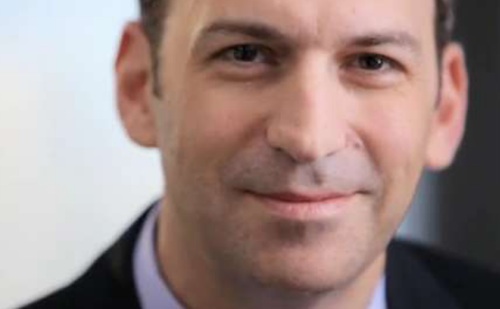 Deloitte's Harry Greenspun
Deloitte's Harry Greenspun
If behavior change is the next big thing to usher in consumers' adoption of mobile health, then the consumers must first trust their mobile technology, according to Deloitte physician Harry Greenspun and IMS Health's Matt Tindall.
"How many of you deposit checks using your phone?" Greenspun asked in a panel at the mHealth Summit event in Washington D.C. "And then how many of you tear up your checks the moment you take a photo of it? People are just afraid that it's not going to work. And so that's fine if you're depositing a check and you're waiting for a couple days to see if it's there or not, but if your phone is controlling your insulin or you defibrillator, maybe you have some concerns. Your signal dropped, did you just die?"
Greenspun suggests that as different sectors in healthcare start adopting digital health technology, the introduction of error is going to be a huge topic.
To solve this issue, Greenspun said one of the biggest fixes will occur over time as a consumer has more experiences with mobile health apps and technologies. He equated it to when online shopping was new and user's were uncomfortable with entering their credit card information online.
"There’s this maturation of the industry that is more willing to do stuff and I think as we start seeing more deployment of successful interventions and some more safeguards we’ll see that," he said. "...As we get more experience and we get better stuff there, I think we’ll do well. We’ll begin to adopt it but you’ve got to make a difference and you’ve got to have trust it’s going to work."
One reason this experience hasn't already occurred, Greenspun said, is because until recently many innovative startups shied away from venturing into the medical device field, for fear of regulation, but that the FDA final guidance might help with this issue.
"[Healthcare startups] don’t have armies of attorneys and armies of compliance folks that some of the larger folks have," Greenspun said. "But we need to find a way, because obviously it's not huge companies that are going to make the big different here. It’s going to be innovation in much smaller companies. You need to get a way to convey to the smaller companies the needs of what the broader healthcare world are, how to make a bigger impact."
Tindall added that IMS Health is now getting involved in the mobile health field only after seeing evidence by smaller companies that it would work.
"We all mature together and the field becomes more industrialized," Tindall said. "Smaller and bigger work hand in hand together. All smaller companies are creating greater innovation. We particularly, as a company, work to help them, so that they are more secure and HIPAA compliant so that people can actually trust what they have in their hand and not feel either that there’s too many steps to get to the answer or that in some way their data is at risk."
In a Deloitte survey, Greenspun found that although people trust doctor's and academic centers most, the next step down are companies like WebMD, then Google searches, and at the bottom of the list is pharma and payor companies.
"So the worst part about that is those groups are the ones providing the most amount of health information and consumers don’t trust them at all," Greenspun said. "So one of the most interesting things we’re seeing in health is partnerships with pharma and payors and with other organizations to get that info, and get those apps in a method they can believe in, and trust."
















